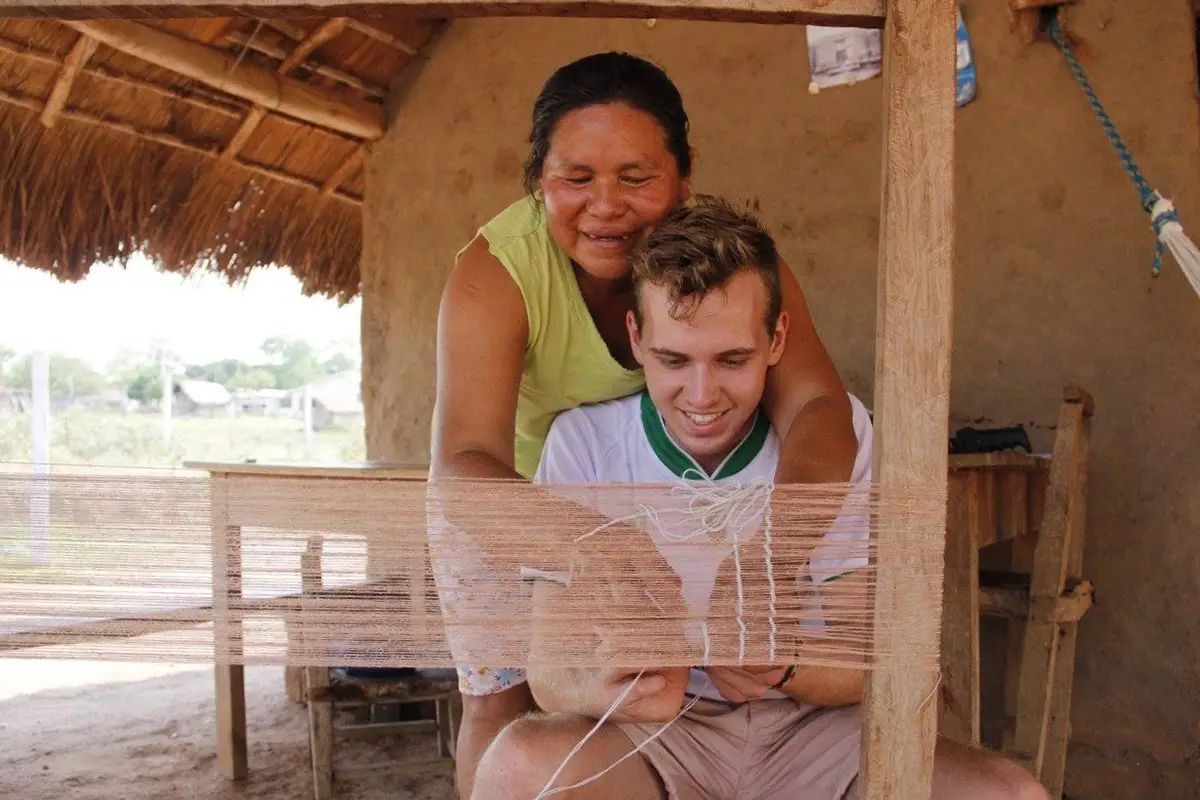Studying abroad is a daunting prospect—it means being far from home, adapting to foreign customs and often living in a country where you don’t speak the language.
When you couple all of this with the stress of living with a host family, it becomes even more intimidating.
Traveling to a new country to live with strangers for five months is difficult to prepare for, but knowing what to expect will make your transition a little bit easier.
1. The family may not be what you imagined.
Though you may already have an image in mind of what your host family will be like, the reality is often very different. One of the first things that I was told when I decided to study abroad was not to expect my hosts to be a typical nuclear family.
More often, homestays are with couples with grown children who have extra bedrooms, or older women who live alone. While it sounds ideal to live with a couple who has children your own age who can show you around and introduce you to locals, you can’t count on this being the case.
In addition to the family structure, the environment will probably vary from what you’re used to. Though this would be the case anytime you’re living with new people, it’s especially relevant when in a foreign country. Many of the host families in my program were very formal and, rather than encouraging discussions and getting to know their students, they tended to be more retrained.
Mine was far more informal, and we would frequently discuss politics and feminism over dinner. Regardless, it will take some time to adjust to the circumstances and to feel comfortable in someone else’s home.
2. They may want to spend more or less time with you than you anticipated.
While you may have certain expectations going into your homestay regarding your level of interaction with the family, they might have a completely different idea in mind. Some hosts like to provide housing for students so they can learn more about their culture or because they want some younger company. Others do it because they want the paycheck that comes with hosting.
Depending on your host family’s motivations, they’ll probably have varying ideas of how much time they want to spend with you. Try to go with the flow and allow them to set the tone for your interactions; if they prefer to keep their distance, you’re better off respecting that than trying to force your way into the family.
While many do want their exchange students to take part in family dinners and activities, you can’t always expect that to be true. Keep in mind that there are various reasons for hosting exchange students and that your hosts might regard you simply as a lodger — and try not to take that personally.
3. Their accommodations will be different.
Many houses abroad don’t have the same luxuries that are more typical in the U.S. While my program was cognizant of the necessity of WiFi and laundry facilities for college students, and therefore ensured that they were present in all homestays, many lacked other amenities such as air conditioning and elevators.
It’s best to prepare yourself for these situations, so they don’t become an issue later on.
Bring clothes that can be re-worn several times in case you don’t have access to a dryer and pack a portable fan to stay cool if there’s no A/C. At the same time, keep in mind while you’re packing that you may have to carry your suitcase up six flights of stairs, and ditch the items that will weigh down your luggage.
Above all, if you do face some inconveniences, remember that your living situation is only temporary and don’t let it get in the way of your study abroad experience.
4. You’ll have to put in some work.
There are a lot of little details that you’ll need to discuss with your host family to ensure a good stay, and the sooner you can work them out, the sooner you’ll start to feel at home.
Some of the questions you’ll need to ask include when you can do your laundry and how to use the machines, when you can use the kitchen to prepare your meals and, if you’re sharing a bathroom, when you can shower and get ready in the morning. Your host family might also have some rules that they set for their students, so make a point of asking what they expect from you.
Whenever you’re unsure of how they would feel about a certain situation, it’s always best to ask. It also doesn’t hurt to play it safe; if you don’t know if they’re okay with you having guests over, for instance, you’re better off not doing it. Establishing a good relationship with your hosts will make your stay a lot easier and more enjoyable, so it’s worth working a bit to make that happen.
5. It’s a time commitment.
One factor that I overlooked before studying abroad was the amount of time that living with a host family would take out of my own schedule. We had four dinners with our families each week, and those meals typically lasted one to two hours. On top of the dinners, there were also activities and parties that I was invited to take part in.
My living situation consequently took a lot of unexpected time away from my schedule. However, if you do want to form a close relationship with your hosts, the added time commitment is well worth it. While I ended up having less time to explore, I was still able to gain a deeper understanding of the city’s culture through getting to know my host family.
Everyone’s homestay experience is different, and it can vary even throughout the semester. You might love your host family and get along with them right away. On the other hand, you might find them cold or distant, or just feel generally uncomfortable in their home. Either way, you’ll have the benefit of fully immersing yourself in a new culture, to an extent that’s not possible when living with friends or on your own.

















